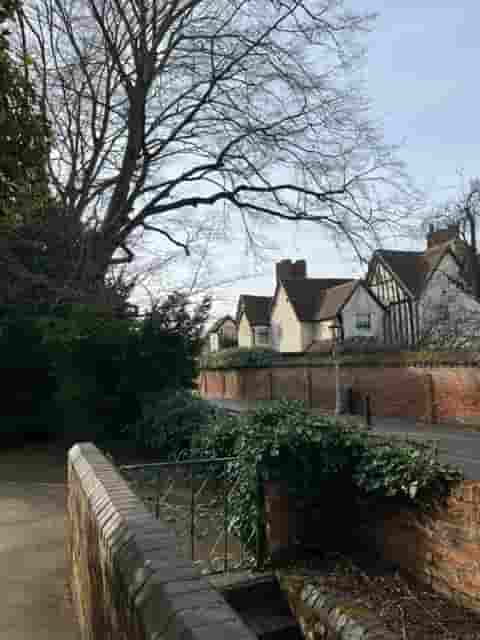Shakespeare for Shakespeare Sake? Or for Something Else?

As my classmates may have noticed, Shakespeare has a way of following you wherever you go in England. On Sunday night I went to mass, and the gospel reading for the day included Jesus’s famous charge to “turn the other cheek” when you are struck (Lk 6:29). The priest then recalled the moments in Shakespeare plays in which mercy is likewise extolled and exhibited. The admirable Portia delivers her glowing speech on “the quality of mercy” in “The Merchant of Venice”. In “The Tempest”, a play which we read for Contemporary Drama, Prospero pardons the usurpers of his dukedom. Thus the preacher rendered Jesus’ exhortation to mercy increasingly noble and attractive by citing similar messages found in Shakespeare.
My mind turned to the other ways in which I have seen Shakespeare’s words used as attractive packaging for various agendas, thus as a kind of propaganda. During a Contemporary Drama class, we drew a distinction between propaganda and art. We concluded that propaganda has only one purpose, to encourage people to support a certain cause, but art may have many purposes. Shakespeare’s plays are certainly art, they are in no danger of being tossed aside as propaganda, however it is interesting to see the ways in which people have employed Shakespeare’s work for purposes other than showcasing its artistic excellence.
Shakespeare wrote the play “Henry V” which gives a glorious and dramatic account of the battle of Agincourt, which took place on October 25th of 1415. My high school was founded on October 25th of 1979. Therefore, we would take that afternoon off from classes each year to celebrate our school, employing the speeches that Shakespeare wrote for Henry V to give our feasting and games an air of heroic struggle and victory like the battle of Agincourt. It was without fail one of the most happy celebrations of the year. Nevertheless, it reveals how easy it is to use Shakespeare’s rousing words to support a certain cause instead of simply appreciating their beauty, or intended emotional draw.

A third case of using Shakespeare for something other than its artistic value, which is notable and familiar to all of us students here, is the town of Stratford upon Avon. With a remarkable unity of will, the whole town strove for the same goal, to commemorate the memory of their most famous citizen. However, there was a second motive pervading the town, the desire to make a profit off of the crowds of people who visit the town every year for the chance to walk in Shakespeare’s footsteps. The small town of Stratford is able to keep up a lucrative tourist industry with the power of just one man’s memory.
Thus the preacher uses Shakespeare to encourage his congregation to be merciful, a school uses Shakespeare to foster school pride, and the town of Stratford uses Shakespeare to make money. These attempts to profit off of Shakespeare are successful, because to the modern mind, somehow a touch of Shakespeare gives a thing an air of venerable refinement. The plays have stood the test of time. They are simultaneously artistic and intellectual, elegantly humorous in comedy, and profound in tragedy. It is inevitable that people will choose to use art for purposes other than artistic appreciation. The individual must judge for themselves whether to support any such uses, but we must allow free use of the art so that the beautiful and good uses of the art may thrive.





